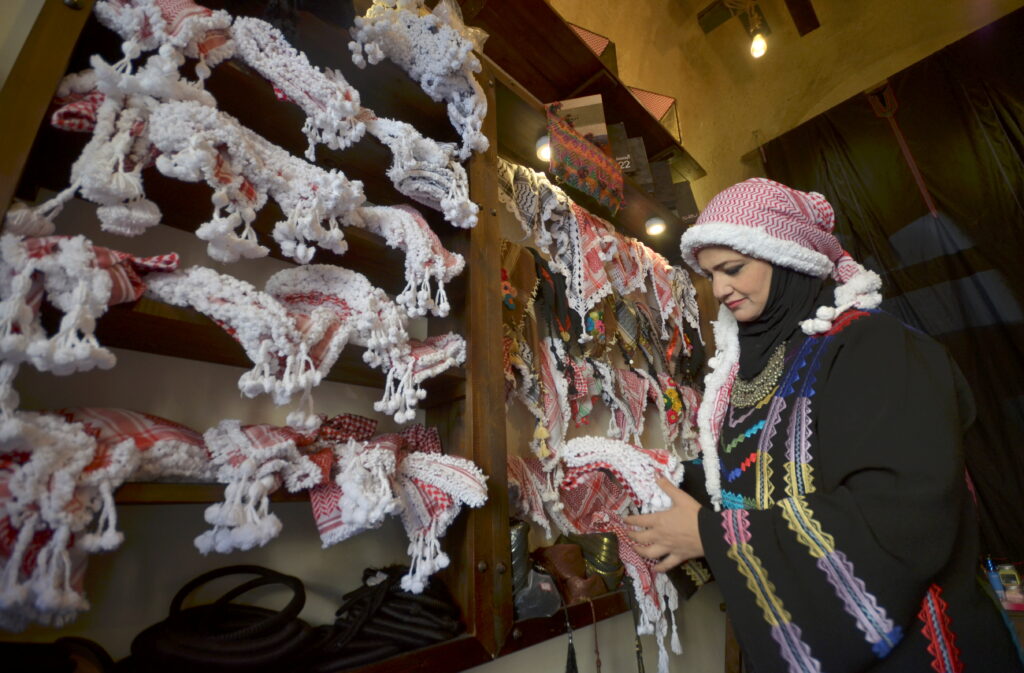Jordan is building scalable startups—without chasing unicorns
As global venture capital firms tighten their belts and fast-growth startups begin to fade, a more sustainable entrepreneurship model is emerging. It’s one based on local alignment, resourcefulness, and above all, resilience.
In the Middle East, Jordan presents a nuanced case study of this emerging model. While the ecosystem has faced stagnation in recent years, with traditional manufacturing industries struggling and established accelerators slowing their activities, a core group of resilient companies demonstrates what sustainable entrepreneurship could look like when properly focused.
“If you understand the Jordanian market well, it offers many opportunities. Don’t expect it to be like the United States or Egypt. Recognize its strengths, like strong universities and investor-friendly tech programs,” said Hala Siraj, co-founder of FENA Holdings, on my podcast, The Straight Up Start Up.
Jordan’s entrepreneurial ecosystem exists in a state of contradiction. With startups and small and medium-sized enterprises (SMEs) contributing an estimated 50 percent of private-sector gross domestic product (GDP) and creating 60 percent of new jobs, the potential is undeniable. Yet, this pattern mirrors that of most emerging markets, where SMEs carry disproportionate economic weight due to limited large-scale industrial development.
The promise and reality of Jordan’s startup scene
Jordan’s startup ecosystem comprises accelerators, funds, and mentoring networks; however, its recent performance raises questions about its sustainability.
Oasis500 has launched over 130 startups, Flat6Labs has invested $800,000 across seven startups, and ISSF committed $7 million to regional funds in 2024.
However, these institutions have notably slowed their activities since around 2020, particularly in the wake of the COVID-19 pandemic and shifting regional investment. The reasons warrant investigation: Have they reached the limits of the local talent pool? Are market conditions constraining their ability to identify viable investments? Or do structural issues in the ecosystem limit their effectiveness?
Understanding why established players have reduced their pace is crucial for determining whether Jordan’s current model is genuinely sustainable or simply experiencing a temporary lull.
Although Jordan may not mint unicorns, privately held startups valued at $1 billion or more, the country has produced several resilient companies. Startups like HyperPay and MSPharma have collectively raised over $123 million, and the Software & Data sector attracted $24.7 million in 2023. However, the broader economic impact remains constrained. In 2023, Jordan’s GDP growth rate was approximately 2.6 percent, reflecting modest economic expansion. Despite this growth, unemployment remains a significant challenge, particularly among youth, indicating that many young Jordanians continue to struggle to find employment opportunities.
The startup sector’s current capacity to substantially reduce unemployment and drive GDP growth faces several structural limitations. Most startups remain small-scale operations serving local markets, with a limited ability to create the volume of jobs needed to have a meaningful impact on national unemployment rates.
Additionally, many tech startups require specialized skills that often do not align with the broader job market’s needs. The ecosystem also lacks the scale and interconnectedness necessary for startups to generate significant multiplier effects across the economy.
However, these developments are meaningful as they lay the groundwork for a more resilient and diversified economy. Continued investment in startups and supportive policies are essential to amplify their long-term impact on employment and economic growth.
A focus on local solutions
Rather than pursuing the unicorn-chasing mentality prevalent in larger economies, Jordan’s most promising ventures focus on solving specific, well-defined local challenges with clear market demand.
The ecosystem’s fragmented nature actually points toward its most significant opportunity: companies that demonstrate how to build sustainable businesses around Jordan’s unique strengths. These ventures serve as proof points for what the broader ecosystem could achieve with proper focus and resources.
WashyWash, founded in 2017, exemplifies this approach with its eco‑friendly laundry and dry‑cleaning service, which utilizes biodegradable detergents and non‑toxic solvents. While specific impact data are limited, the company notes that its EcoClean products are toxin-free, biodegradable, and designed to minimize chemical pollution and water usage.
Jordan is among the world’s most water–scarce countries, with less than 100 m³ of renewable water per person annually, so services that reduce water and chemical usage can make a meaningful contribution to sustainability efforts.
ViaVii, which evolved from “Friendture” in 2016 and rebranded in 2019, demonstrates how to leverage Jordan’s tourism and cultural heritage assets. The travel-tech platform curates community-driven experiences that directly capitalize on the country’s established tourism infrastructure and cultural positioning.
These companies represent what Jordan’s ecosystem should prioritize: ventures that identify clear local advantages, solve genuine problems, and build sustainable business models before attempting regional expansion. Their success suggests that Jordan’s entrepreneurial potential lies not in replicating Silicon Valley models, but in developing businesses that are uniquely suited to the country’s specific strengths and constraints.
The value of experience over hype
In a global culture that often glamorizes the college-dropout-turned-founder narrative, Jordanian entrepreneurs tend to build their ventures on a foundation of real-world experience. This experience typically involves roles in established companies, where individuals learn about market dynamics, customer behavior, and operational challenges.
Siraj’s own trajectory, from investment banking to Uber to Talabat, reflects this path.
“I worked in four companies before starting my own,” she said. “That experience made the risks manageable. At Uber, I learned to correct mistakes quickly. At Talabat, I understood spending patterns. That’s what allowed me to build something sustainable.”
A similar model is the success of Abwaab, an EdTech platform offering online learning tailored to regional curricula. The founders’ background in education and technology enabled the company to gain significant traction before expanding regionally.
The capital contradiction: Between caution and ambition
Jordan’s relationship with startup capital reveals a fundamental tension in its ecosystem. While many founders espouse building sustainable, non-unicorn businesses, the reality is more complex.
Jordan’s ecosystem faces a central challenge: even in a market that claims to reject unicorn-chasing, many entrepreneurs still pursue rapid growth and high valuations. The disconnect between rhetoric and reality suggests that Jordan hasn’t fully committed to its alternative model.
Many early-stage entrepreneurs pursue funding without sufficient operational experience or market readiness, which can lead to difficulties in securing investment and sustaining growth.
However, some companies demonstrate a more grounded approach to capital. Liwwa, a Jordanian FinTech lender to SMEs, secured funding from the US International Development Finance Corporation (DFC) in May 2024 only after demonstrating substantial impact, contributing to the creation of more than ten thousand jobs and generating $34 million in income for business owners and employees. Notably, the DFC was spared from the sweeping cuts to US foreign aid programs by US President Donald Trump’s administration, which largely dismantled the US Agency for International Development (USAID), allowing it to continue supporting ventures like Liwwa.
Many successful Jordanian startups begin by bootstrapping, growing their businesses through internal revenue rather than relying on early-stage venture capital. MadfooatCom, a fintech company founded in 2011, scaled its national electronic bill payment system, eFAWATEERcom, by reinvesting operational earnings. Without large initial external funding, the company partnered with the Central Bank of Jordan and expanded its services through steady, revenue-driven growth.
The missing half: Gender gaps limit economic potential

Jordan’s economic challenges extend beyond the dynamics of its startup ecosystem to fundamental demographic issues. Despite high educational attainment among women, with 74 percent of the female workforce holding a bachelor’s degree or higher, female labor force participation was only 13.9 percent in the second quarter of 2024, compared to 53.6 percent for males.
Female unemployment rates remain significantly higher than the 18.9 percent rate for males during the same period. These disparities represent not just social inequity but massive economic inefficiency.
Studies estimate that increasing women’s labor force participation by just 25 percent would result in a 10 percent growth in GDP. This suggests that Jordan’s startup ecosystem, regardless of its current challenges, operates in an economy that is dramatically underutilizing its human capital.
Addressing these gaps is not only a matter of equity but also economic necessity for any sustainable development model.
A model worth refining
Jordan’s startup ecosystem offers valuable lessons, but not necessarily the ones initially apparent. Rather than serving as a ready-made alternative to unicorn-chasing, it demonstrates both the potential and pitfalls of building entrepreneurship in resource-constrained environments.
The ecosystem’s most promising elements, companies like WashyWash and ViaVii that solve local problems while building sustainable businesses, point toward what focused development could achieve. However, the recent slowdown of established accelerators and the persistent contradiction between sustainable rhetoric and growth-focused behavior suggest that Jordan hasn’t yet fully realized this alternative model.
For founders, funders, and policymakers, Jordan’s experience suggests that building sustainable startup ecosystems requires more than rejecting unicorn culture. It demands a systematic focus on local advantages, honest assessment of market realities, and recognition that alternative models require their own forms of discipline and commitment.
Jordan may be a small market, but its struggles and successes offer insights that are increasingly relevant as global startup culture reconsiders its assumptions about growth, sustainability, and success.
Rajae Sahouri is an entrepreneurship and investment professional supporting innovation and new ventures in the Middle East. He is the founder and host of The Straight Up Start Up podcast, an executive member of Jordan’s Youth Government Initiative. He also leads youth-focused programs such as King’s Academy’s Entrepreneurship Incubator.
Further reading
Wed, Jun 25, 2025
Why King Abdullah’s rule in Jordan has endured despite turbulence
MENASource By
With a struggling economy, little oil, and surrounded by wars, how has Abdullah remained in power for more than a quarter century?
Tue, May 27, 2025
Jordan-Israel security cooperation continues quietly but unabated
MENASource By Emily Milliken
Despite diplomatic setbacks from the Israel-Gaza war, military and intelligence cooperation continues to thrive between the two neighbors.
Thu, Jul 17, 2025
Facing scarcity, the Gulf’s ‘smart water’ future lies in desalination
MENASource By Hany Ghanem
Desalination-enhanced regenerative data centers can help tackle the challenges of limited water resources and the post-oil economic shift.
Image: Sham Albdour and Jana Albdour, co-founders of Sakura games, work on their laptops inside the library of Al Hussein Technical University in Amman, Jordan August 30, 2021. Picture taken August 30, 2021. REUTERS/Muath Freij


